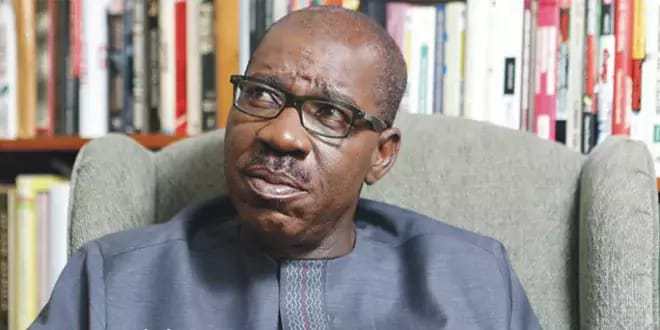The Nigeria Erosion and Watershed Management Project (NEWMAP) is executing about N18 billion gully erosion and flood control projects in 11 communities in Edo State.

Coordinator of the project, Mr Tom Obaseki, disclosed this in an interview with the News Agency of Nigeria (NAN) on Tuesday, June 9, 2020 in Benin City, the state capital.
Obaseki said the projects which attained various stages of completion were spread across the three senatorial zones in the state.
He listed the projects in Edo South Zone to include the Gapiona catchment area; Edo College, Ogiso; and Urora areas gully erosion as well as flood control in Benin.
Others are Ewu, Ibore, Emu and Ambrose Alli University (AAU) gully erosion control in Edo Central Zone, while in Edo North Zone, flood control is being implemented at Igbe quarters as well as erosion control at Fugar and Agenebode.
“Most of the gully erosion have threatened the structures within the areas where they exists. Like that of the Edo College, this has been threatening the school buildings for several years and brought down many buildings in the area.
“Erosion in Ewu and Ibore had cut off the communities from each other while that of AAU threatened major structures in the campus.
“The impact of these gully erosion on the communities are enormous, some of these communities have been cut off,” he said.
The coordinator said that eight of the projects were awarded in 2019, adding that the projects had between 18 and 24 months completion period.
Obaseki stressed that funding challenge would not pose problem to the delivery of the projects, as the state government had not failed in its responsibility in the payment of counterpart fund for the World Bank’s projects.
“The only challenge is the process to secure the right of way for the civil work to be done.
“In the course of doing that, you need to establish the people that own asset along the right of way. Ours is not to develop land registry and land management system is a big challenge in this regard.”
Obaseki said in addition to solving the erosion challenges in the affected communities, the project intervention also focus on providing alternative livelihood to the people.
He said: “In addition to solving these problems, we also appreciate the fact that the impact of the gully erosion has negatively affected the livelihood of the people within these environments.
“We do not just go there to solve the gully erosion problem, we also remember that the impact is there and try to correct it.
“We support communities by embarking on livelihood activities through the formation of cooperatives to provide alternative livelihood to the affected persons.”
Obaseki revealed that about 2,600 families had so far benefited from the programme in the state.
He said that 109 gully erosion sites were identified and documented in the state, noting that 90 per cent of the gullies were man made.
“You can imagine putting over N18 billion to solve few of this projects because of the value we have for the lives of our people.
“Unfortunately; these gullies are man made, that is why we are emphasising more on preventive measures.
“As citizens; we must try to understand the impact of our actions in our lives. Once we understand this, most of these gullies will not form around us.”
By Igbaugba Ehigimetor
